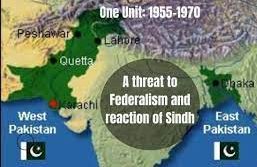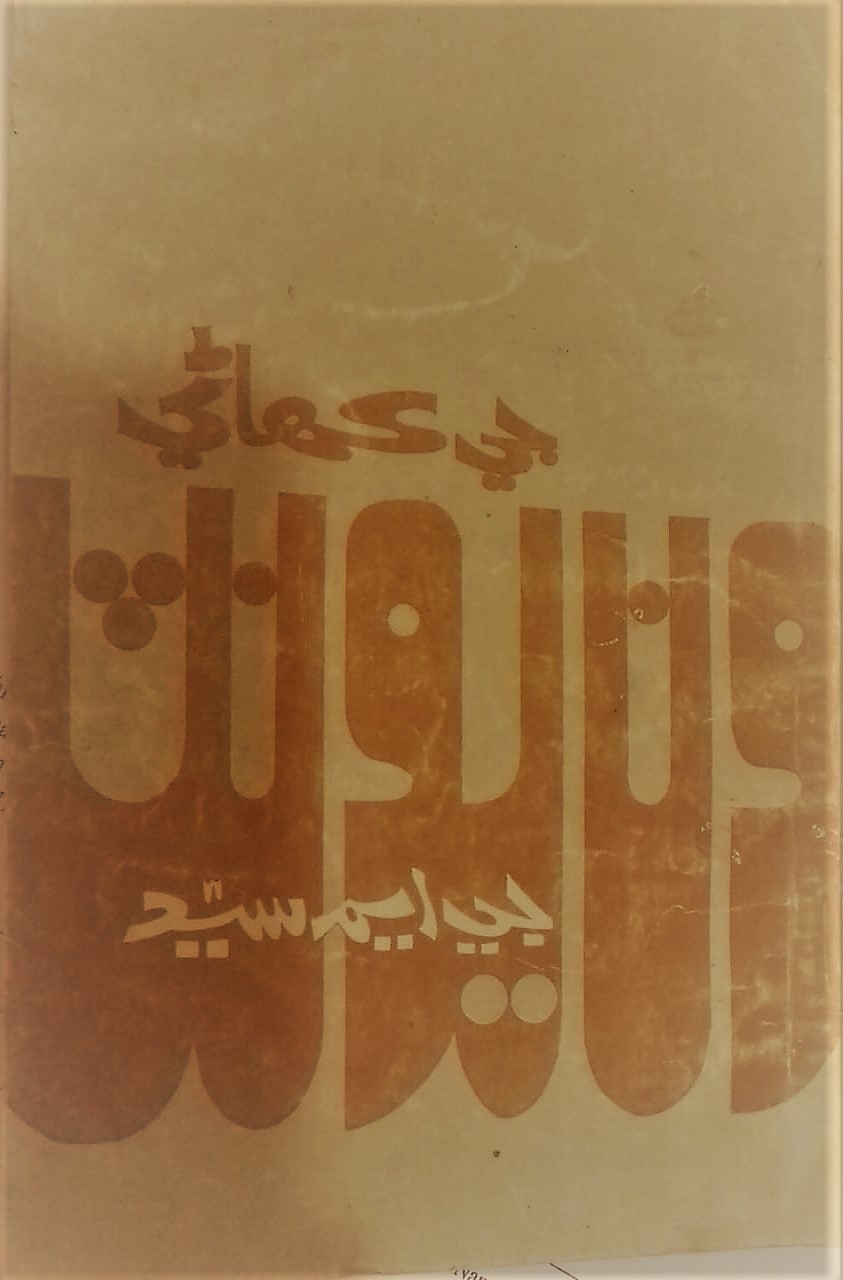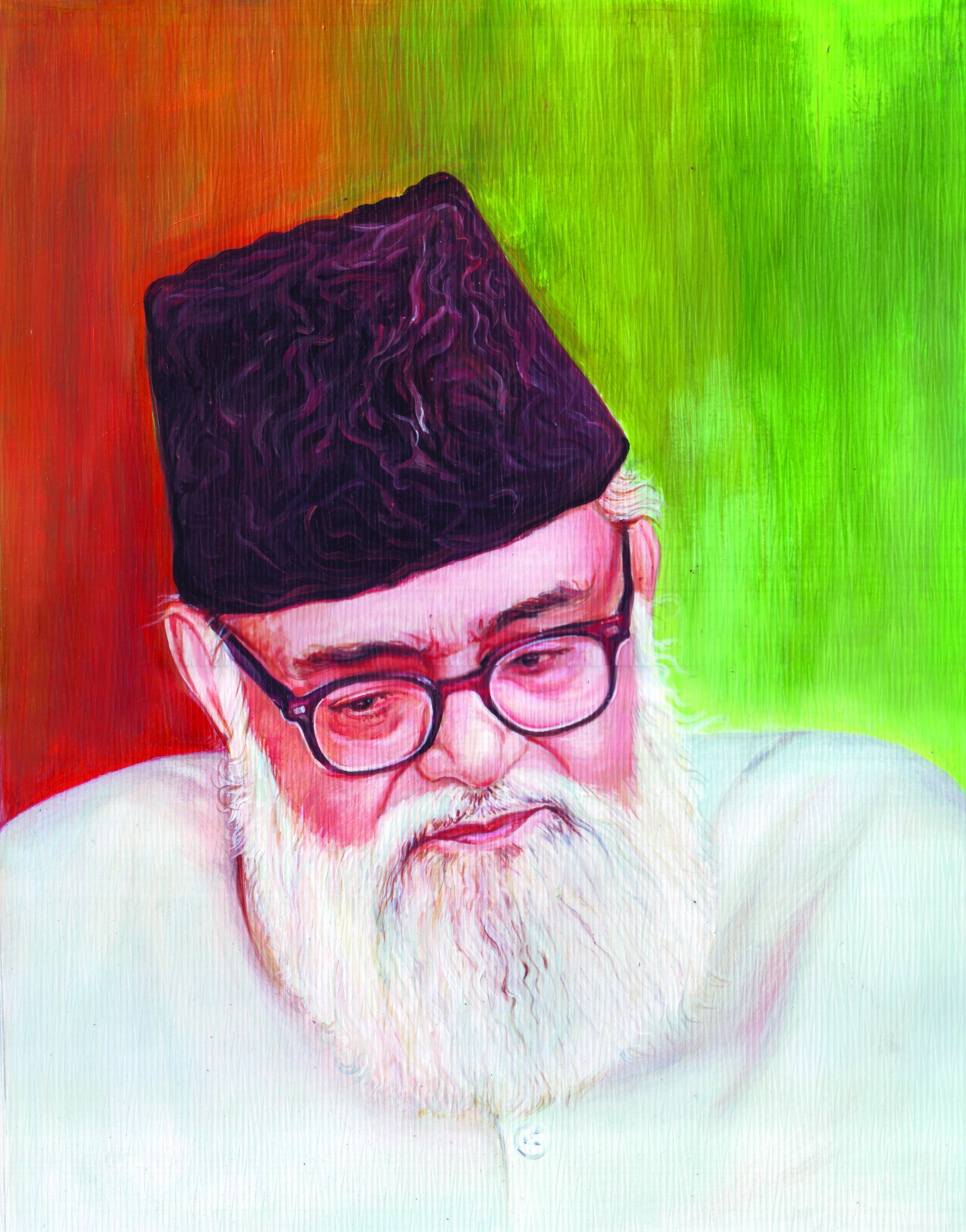
Jamaat-e-Islami deviated from its main purpose and stepped in the politics, and then its fine objectives became doubtful and questionable.
Dr. Zaffar Junejo
(Author’s Note: One Unit was dissolved on 1st July, 1970. Sindhi nation along with Bengalis, Balochis, and Pathans fought against it through platforms of cultural associations, literary organizations and political parties. By and large One Unit was opposed across Pakistan however the Anti-One Unit Movement’s epicenter was Sindh. Sindh opposed One Unit because it was considered a tool to alter its demography, grab resources and strategically control wealth of the province. Sindhi nationalists, supported by other political parties forged an association to realize one point agenda – dismantle One Unit. They carried the struggle in all odd and even situations, and bore the cost – jails, punishments, insults, life threats and issuing of ‘certificates’ of disloyalty and treachery but they continued their struggles, and got it undone – Sindh was restored with its full name, and titles.
In 2020, an idea was floated by some Sindh-lovers that Sindh has to celebrate Anti-One Unit Abolition Day as the Golden Jubilee event, just to cherish, and recall the successful struggle of Sindhi peoples. In this regard, the author intends to translate some of the basic and most relevant documents from Sindhi language into English, in sprit of celebration and remembrance. The first in the series is Saeen GM Syed’s article: One Unit Jo Qiyam: Mukhalfan Ja Khadsha and Muwafqan Ja Faidi Mean Dalil (Formation of One Unit: Opponents’ Apprehensions and Supporters’ Arguments in its favor).

The article is taken from the booklet: One Unit Ji Kahani (The Story of One Unit). The book was authored by GM Syed and published by Yar Muhammad Ibin Hayat Panhwar, Secretary Sindh Mutaheda Mahaz, Markazi Office, Al-Khalil Building, Qazi Qayoum Road, Hyderabad. Its printer was Begum Zeenat Channa, ‘Zeenat Printers’ Khokhar Mahlo Hyderabad. Its first edition with 2000 copied came in November, 1969 – Dr. Zaffar Junejo.)
One Unit Ji Kahani (The Story of One Unit) – VIII
GM Syed
Jamaat-e-Islami
The association was formed by Abul A’la Al-Maududi with a main purpose to interpret Islam, according to the needs of present times. Unfortunately, it stepped in the politics, and then its fine objectives became doubtful and questionable. Otherwise, an impressive number of the educated class might has been its follower. The youth has questioned the party’s political views, and the people of the small provinces have following doubts:
- Nomination of ‘Amir’ indicates its inclination towards dictatorship.
- Opposition to economic equality, and aligning that idea with atheism created doubts that Maulana is in favor to retain big land-lordship and promote capitalism.
- Demanding abolition of One Unit in the West Pakistan, but insisting to implement the Constitution of 1956, and supporting the zonal federation, and occasionally interpreting prayer type words ‘Jeay Sindh’ as ‘Death to Pakistan’ creates doubts, and hurdle in the advancement of the party in the smaller provinces.
 It is known to Maulana that according to the Islamic point of view, all sons are equal share holders in the property of a father, but the followers of his party, deviate from that principle and in response to small provinces’ demand for provincial autonomy insist to accept the Constitution of 1956, and zonal federation. Interestingly, people who demand due rights are framed and presented as agents of the foreign countries as well as enemies of Islam.
It is known to Maulana that according to the Islamic point of view, all sons are equal share holders in the property of a father, but the followers of his party, deviate from that principle and in response to small provinces’ demand for provincial autonomy insist to accept the Constitution of 1956, and zonal federation. Interestingly, people who demand due rights are framed and presented as agents of the foreign countries as well as enemies of Islam.
Jamaat’s leadership is aware that the majority of people are poor and live in abject poverty. A few capitalists own the country’s resources, wealth and properties. In other countries this mania is controlled through planning, and one of the options is called “socialism.” However, we should not mix the idea of socialism and communism. Likewise, atheism is not part and parcel of socialism.
_______________
 Dr. Zaffar Junejo has a Ph.D. in History from the University of Malaya. His areas of interest are post-colonial history, social history and peasants’ history.
Dr. Zaffar Junejo has a Ph.D. in History from the University of Malaya. His areas of interest are post-colonial history, social history and peasants’ history.
Click here for Part-I , Part-II, Part-III, Part-IV , Part-V , Part-VI, Part-VII